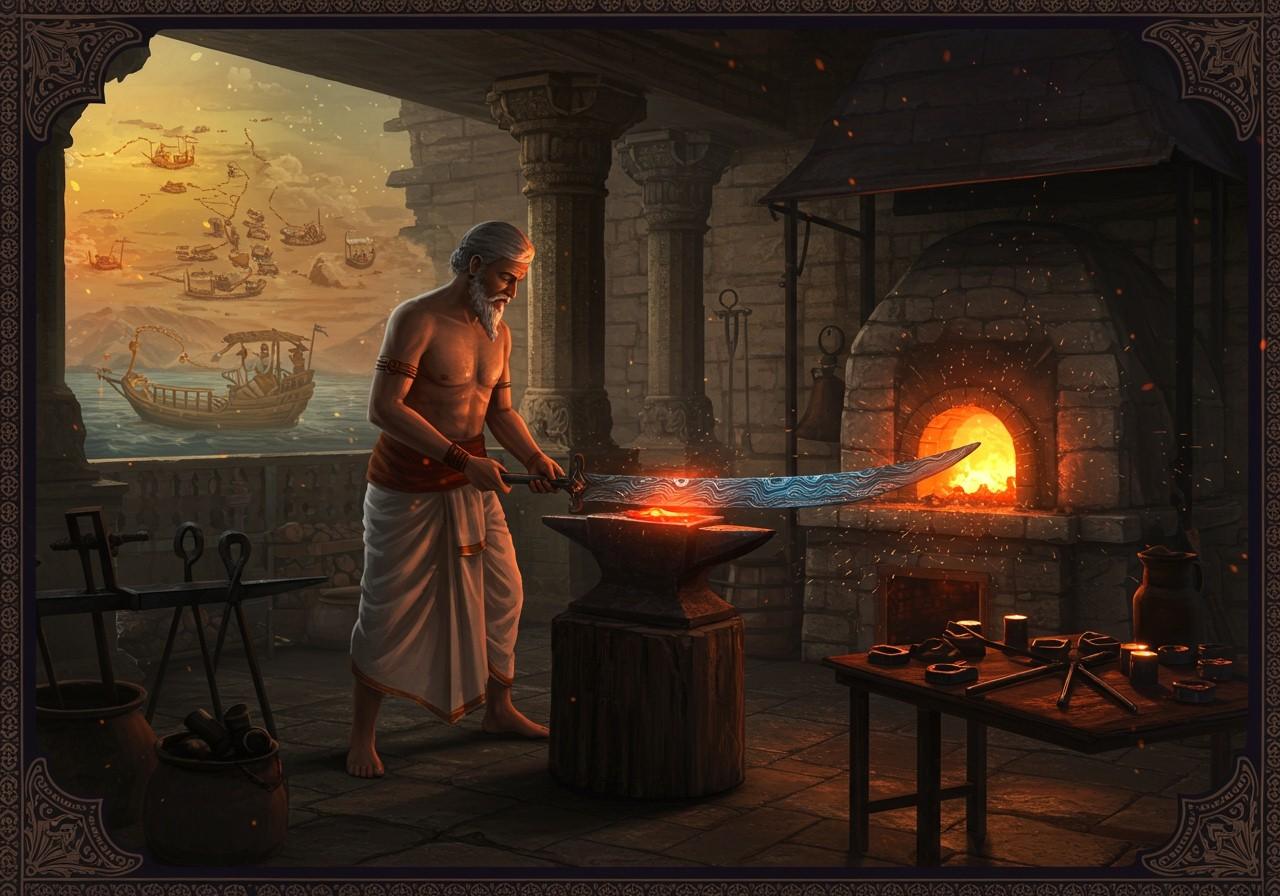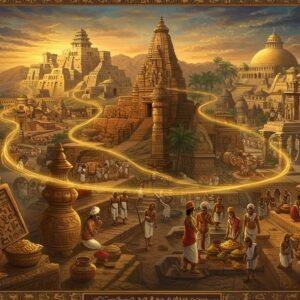
Wootz steel, a material of historical importance, originated in ancient India. Celebrated for its exceptional attributes and remarkable value, it held a pivotal role in shaping various facets of Indian culture. This article delves into the origins, cultural impact, and enduring legacy of Wootz steel.
Origins and Production
Wootz steel’s origins can be traced back to ancient India, specifically regions like Telangana, Tamil Nadu, and Kerala. The production process involved melting high-carbon iron in crucibles, resulting in a distinctive material possessing superior strength and flexibility. Ancient Indian metallurgists, through centuries of practice, refined this technique, utilizing local iron ore that contributed significantly to the high quality of Wootz steel. Historical accounts reveal that Wootz steel became a cornerstone of the local economy, and it was widely exported to diverse regions, including the Near East where it became the foundation for Damascus steel.
Cultural Significance in Ancient India
Wootz steel commanded immense cultural reverence in ancient Indian society. Its applications spanned weaponry, tools, and ceremonial objects. Swords forged from Wootz steel embodied valor and nobility, often linked to historical figures like Tipu Sultan. These swords transcended mere functionality; they were exquisite works of art, reflecting the exceptional craftsmanship and cultural ethos of the era. Ancient texts and literature frequently mention Wootz steel, underscoring its esteemed status.
Trade and Global Influence
Wootz steel became a prominent commodity along established trade routes, extending its reach to the Middle East, Europe, and China. This trade significantly influenced the development of Damascus steel in the Middle East, impacting global metallurgy and weaponry. Historical chronicles penned by foreign travelers extol the virtues of Indian Wootz steel, emphasizing its economic importance. The profound influence of Wootz steel continues to be acknowledged in contemporary metallurgy and materials science. The legacy of Damascus steel, renowned for its patterns, durability, and sharpness, stands as a testament to the advanced skills and knowledge of ancient Indian blacksmiths.
Tipu Sultan’s Wootz Steel Sword
Tipu Sultan’s sword, crafted from Wootz steel, serves as a compelling example of the material’s exceptional quality. Known for its unique characteristics and superior craftsmanship, the sword played a crucial role during his reign and in his battles against British forces. It stands as a symbol of resistance and cultural pride. Today, Tipu Sultan’s sword is displayed in various museums, preserving a significant piece of Indian heritage.
Legacy and Modern Relevance
The legacy of Wootz steel continues to resonate in modern India. Contemporary researchers delve into the study of ancient Wootz steel to gain deeper insights into its remarkable properties. Initiatives are underway to revive traditional production techniques, and there’s a growing appreciation for Wootz steel in modern art and craftsmanship. Designs inspired by Wootz steel capture the essence of a rich cultural heritage while embracing modern creativity.
Modern Ritual Items at Poojn.in
At Poojn.in, we celebrate India’s rich metalworking heritage by offering a curated collection of high-quality brass ritual items. While not made of Wootz steel, these items reflect the same dedication to craftsmanship and spiritual significance that characterized ancient Indian metalwork.
- Our brass Tir Kathi (trishul kathi) is available in various sizes, including 12-inch (link) and 14-inch (link) options, each meticulously crafted with attention to detail.
- We also offer the brass Kulo (tokri), measuring 15×11 inches (link and link), an essential item for diverse religious ceremonies, made with pure brass according to traditional design principles and modern quality standards.
Poojn.in offers authentic worship materials with prices starting from ₹1,149 for ritual items, inclusive of free shipping and secure packaging. Explore our complete range of brass ritual items to connect with India’s metalworking traditions and fulfill your spiritual needs.
Note: Prices are subject to change. Please visit our website for the latest pricing information.
Kandariya Mahadeva Temple
Bhoganandishwara Temple
Conclusion
Wootz steel stands as a testament to India’s remarkable metallurgical history and rich cultural heritage. Its extraordinary properties, profound cultural significance, and lasting influence on global metallurgy underscore its historical importance. From the valiant swords of ancient warriors to the intricate artistry of modern artisans, Wootz steel continues to inspire and resonate with us today. By appreciating and reviving this ancient craft, we honor our past and pave the way for future innovations, seamlessly merging tradition with modernity.


